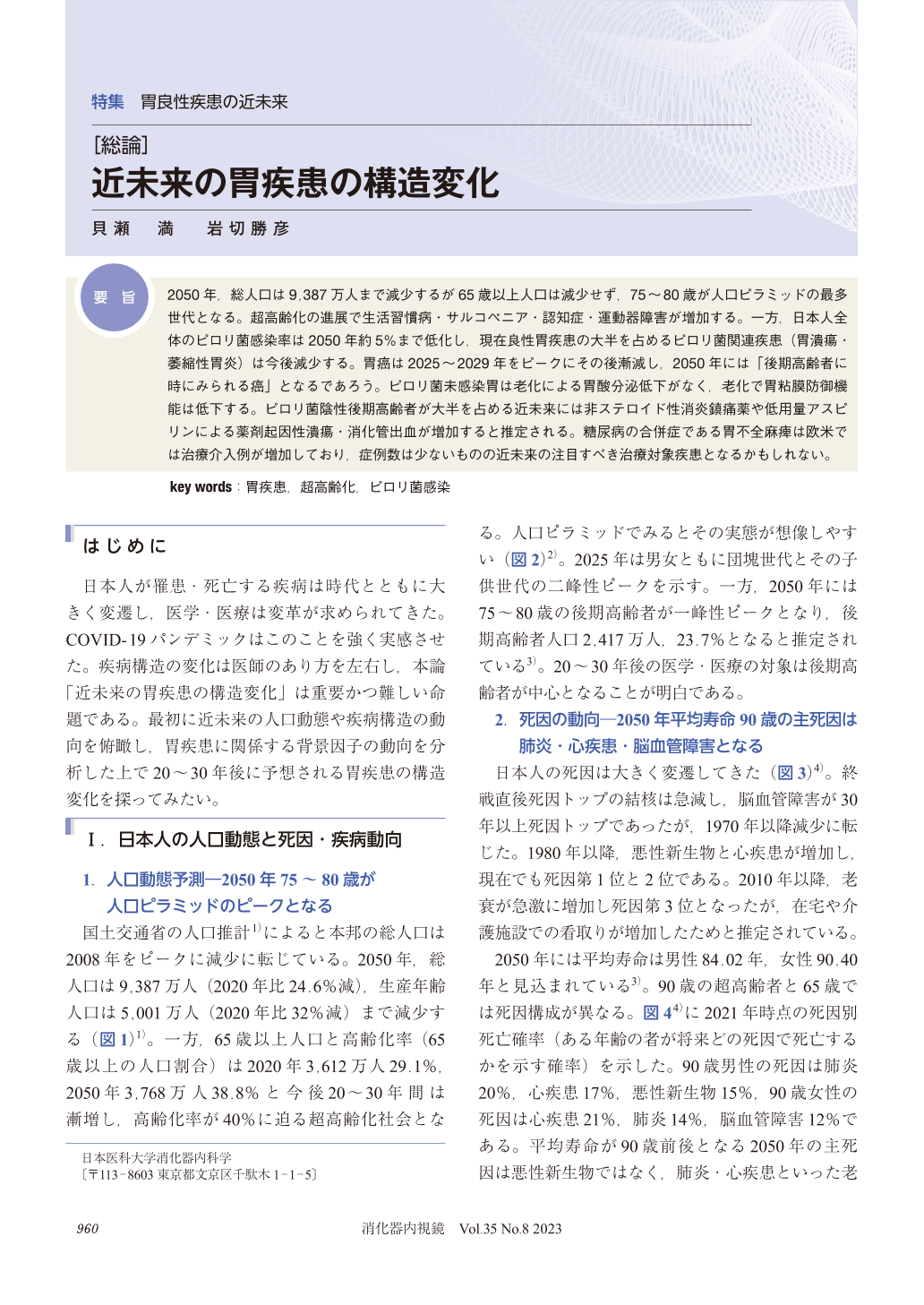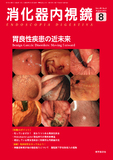Japanese
English
- 有料閲覧
- Abstract 文献概要
- 1ページ目 Look Inside
- 参考文献 Reference
- サイト内被引用 Cited by
要旨
2050年,総人口は9,387万人まで減少するが65歳以上人口は減少せず,75~80歳が人口ピラミッドの最多世代となる。超高齢化の進展で生活習慣病・サルコペニア・認知症・運動器障害が増加する。一方,日本人全体のピロリ菌感染率は2050年約5%まで低化し,現在良性胃疾患の大半を占めるピロリ菌関連疾患(胃潰瘍・萎縮性胃炎)は今後減少する。胃癌は2025~2029年をピークにその後漸減し,2050年には「後期高齢者に時にみられる癌」となるであろう。ピロリ菌未感染胃は老化による胃酸分泌低下がなく,老化で胃粘膜防御機能は低下する。ピロリ菌陰性後期高齢者が大半を占める近未来には非ステロイド性消炎鎮痛薬や低用量アスピリンによる薬剤起因性潰瘍・消化管出血が増加すると推定される。糖尿病の合併症である胃不全麻痺は欧米では治療介入例が増加しており,症例数は少ないものの近未来の注目すべき治療対象疾患となるかもしれない。
Japan’s population will decrease to 93.87 million in 2050, but the population over 65 years old will not decrease, and the population pyramid will peak at 75-80 years old. Lifestyle-related diseases, sarcopenia, dementia, and musculoskeletal disorders will increase due to the super-aging of the population. H. pylori infection rate will decrease to about 5% in 2050, and H. pylori-related gastric diseases (gastric ulcer and atrophic gastritis) will decrease further. The prevalence of gastric cancer will peak between 2025 and 2029, then gradually decline between 2030 and 2039, and by 2050, gastric cancer will be a cancer sometimes seen in the elderly in later life. Gastric acid secretion does not decline with aging in individuals uninfected with H. pylori, and gastric mucosal defense function declines by aging. The proportion of elderly patients taking NSAIDs and low-dose aspirin is high, and drug-induced gastric ulcers and gastrointestinal bleeding are expected to increase in the near future. Gastroparesis, a complication of diabetes mellitus, is increasing in the United States and Europe. Gastroparesis will be small in prevalence in Japan, but may be a disease to watch in the near future.

© tokyo-igakusha.co.jp. All right reserved.


